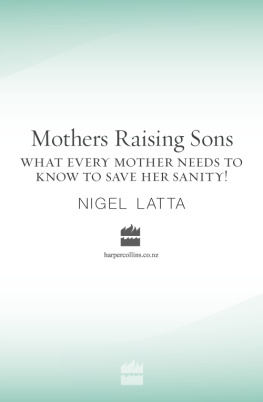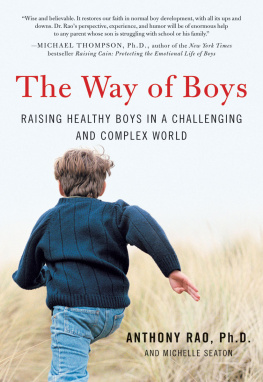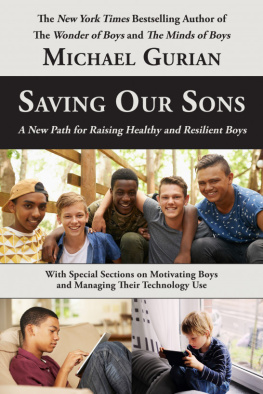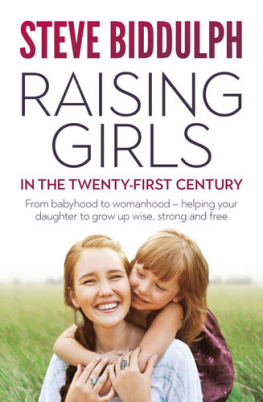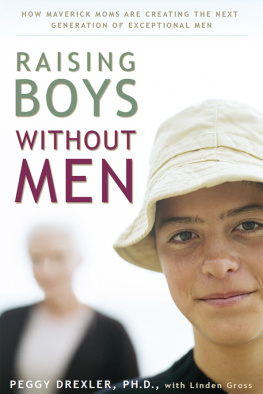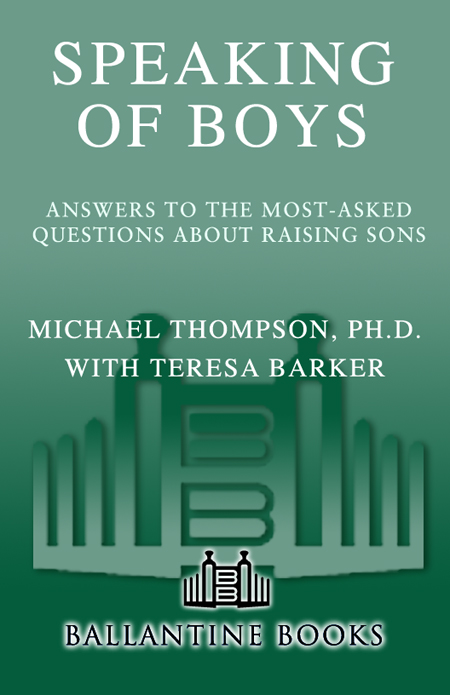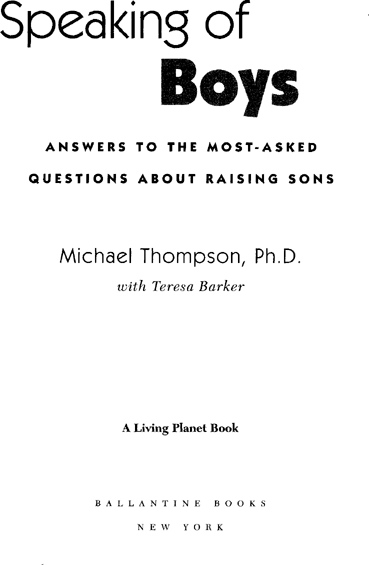Acknowledgments
I would like to acknowledge all I have learned from the faculty, administrators, parents, and students at The Belmont Hill School, and to thank the head of the school, Richard Melvoin, for his support of my work.
My writing partner, Teresa, and I are also grateful to the countless other parents, educators, colleagues, friends, and boys across the country whose shared stories and questions provided the basis for this book. Many who opened their lives to us in the writing of Raising Cain: Protecting the Emotional Life of Boys returned with updates and new puzzlements or concerns.
We extend thanks to Liz Perle, who heard me speak at the Town School for Boys in San Francisco and suggested I continue to talk with parents through a question-and-answer book, and to our agent, Gail Ross, for carrying the project forward. We also appreciate the efforts of Ballantine editor Joanne Wyckoff and her editorial and production staff, and the special assistance of Eileen Chetti, Sherry Laten, Leslie Kagan, and Melissa Jordan-Drummond.
I would like to thank my wife, Theresa, and my children, Joanna and Will, for their love and support, and their patience with my writing Speaking of Boys on our Florida vacation. Teresa thanks her husband, Steve, and her children, Aaron, Rachel, and Rebecca, for their love, support, and patience on the home front.
Speaking of boys, we offer particular thanks to the sons in our lives (Will and Aaron) for providing such a vital piece of our continuing education.
Introduction
InRaising Cain: Protecting the Emotional Life of Boys, my coauthor, Dan Kindlon, and I set out to break the traditional silence about boys' emotional lives and advance a more enlightened approach for raising boys to be emotionally whole, moral, and resilient young men. The tragic shootings at Columbine High School focused public attention squarely on these issues, and for more than a year since the publication of Raising Cain, we have been on the road continuously, speaking to parent and teacher groups, education leaders, public policy makers, and the media across the nation about the nature and potential of boys.
The silence has certainly been broken. The level and fervor of public dialogue has been gratifying. What has impressed us the most, however, has been the freeing effect this public conversation has had on parents' willingness to seek advice about issues they face with their sons at home. Wherever we go now, and in letters from readers of Raising Cain, parents are more eager than ever to share their boy stories, open up their lives, and air their concerns and questions. The hesitation that used to couch so many questions about boys is gone. What we hear now are more candid questions that reflect the great diversity of boys and boy experience-all kinds of questions about all kinds of boys. This is good.
The value in asking questions out loud is that more people can learn from them. Sometimes the answers offer new ideas or insights. Sometimes they confirm that which a parent already believed, but may have wondered about. And sometimes just hearing that other parents have the same questions can give a feeling of connection to the greater community of caring adults. As child psychologists, we, too, have learned from the questions. The more I hear, the more clearly I can see what perplexes parents and educators about boys and what we can do to help them.
I was asked to write Speaking of Boys, not as a textbook on boy psychology, but as an extension of the kind of relaxed discussion of boy life that typically unfolds at my public speaking engagements and in private therapy with boys and their families. While IVe answered thousands of questions in these settings, it never occurred to me to write them all down and save them, first because I was too busy listening and talking to do any writing, but also because I have the organizational skills of an average eighth-grade boy. As it turned out, there was no need for old notes.
I invited Teresa Barker, a veteran journalist who collaborated as our writing partner for Raising Cain, to join me on this new adventure, collecting fresh stories and questions from parents, teachers, mental health professionals, and other caring adults across the country and from all walks of life. Teresa is the mother of a son, age fourteen, and two daughters. Though not a psychologist, she has a natural gift for putting parents at ease. Many parents who have never attended a parenting talk shared their concerns and questions in personal interviews with her. Many parents who don't have access to private therapy were pleased to bring their concerns to me this way. And many people who would never ask their questions in public found a comfort level in tossing their questions into the pot anonymously and for the common good.
To keep the book a manageable length, we selected questions that best represented the concerns I hear again and again from parents and others engaged in working with boys. To share the rich diversity of life with boys, while protecting everyone's privacy, we changed names and some details in the stories. Every one of these questions reflects a true-life minidrama or sometimes the comic relief also a trademark in the life of boys. We chose not to clean up the scenarios to simplify the lives and the issues they raised. In everyday life, parents and teachers-and therapists-are asked to problem-solve with insufficient information. The process of discovery includes looking for more than one explanation and remaining open to more than one kind of response. This is the way we need to talk and think to get closer to the truth.
There was no way to rank the questions. Who's to say that a question about what makes one happy boy tick is any more important than a question about what makes another boy a walking time bomb? When questions come from a caring place, they are all equal. So we grouped the questions in categories by topic. They cover the full range of boy life, from the most serious concerns to the most humorous, and they cover all ages of boys.


